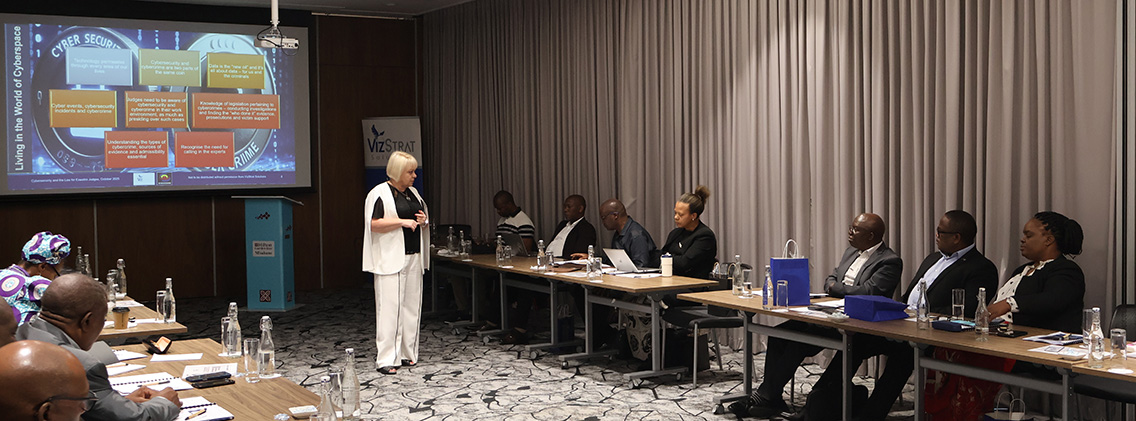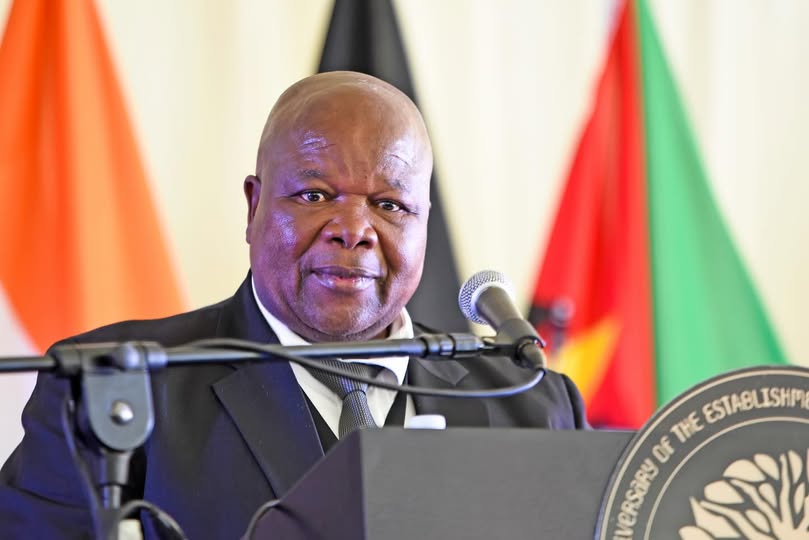
Equipping Justice: Eswatini’s Judiciary Strengthens...
The Judiciary of Eswatini, in partnership with the Ministry of Information, Communications and Technology (ICT) and the Eswatini...
Dispensing Justice Responsibly
The Judiciary is responsible for the administration of justice in accordance with the Constitution and laws of Eswatini. We maintain fairness and promote constitutional values through professional administration of justice that upholds the rule of law and protects the rights and freedoms of all citizens.

Important services and information
Information about courts, jurisdictions, and procedures to help you navigate the judicial system effectively.
Estate administration and related services for managing legal matters and property distribution.
Appointments and administration of the judiciary, ensuring qualified and impartial judicial officers.
Get in touch with the judiciary for inquiries, assistance, or to schedule appointments and hearings.
Established by the Constitution
"The essence of judicial independence lies in the freedom to decide cases without external pressure, with only the law and conscience as guides."
In the Kingdom of Eswatini, the Judiciary is vested with judicial power and shall be independent and subject only to the Constitution. Neither the Crown nor Parliament shall have the power to control the exercise of judicial power. This constitutional guarantee ensures that justice is administered impartially and without fear or favor.
Judges have the freedom to make decisions based solely on law and evidence, without external influence.
Justice is administered without bias or prejudice, ensuring equal treatment for all citizens.
Judicial officers are protected from arbitrary removal or interference in their judicial functions.
The judiciary maintains its own administration and budget, free from executive control.
Adequate and secure funding ensures the judiciary can function independently and effectively.
Specialized legal services designed to meet diverse needs
Labour law in Eswatini refers to the laws and regulations that govern employment relationships, workers' rights and protections, and workplace safety regulations.
Small Claims court is designed as a legal venue where smaller monetary disputes can be resolved quickly and efficiently without the need for extensive legal procedures.
Civil law in Eswatini refers to the legal system that deals with disputes between individuals or entities, such as family disputes and contract disputes.
Family law handles matters relating to family relationships including marriage, divorce, adoption, child custody and support, and protection from domestic violence.
Guiding principles that define our commitment to justice
To uphold the rule of law and effectively dispense justice to all citizens of the Kingdom, ensuring that the judiciary maintains its independence and respect.
To administer justice fairly and to all members of society regardless of status, to uphold the provisions of the Constitution of the country, and to offer public service of the highest standard.
To safeguard the independence of Judiciary and protect the constitutional rights and freedoms of the citizens, while ensuring access to justice for all.
Stay informed about recent developments and announcements

The Judiciary of Eswatini, in partnership with the Ministry of Information, Communications and Technology (ICT) and the Eswatini...

The Honourable Chief Justice of the Kingdom of Eswatini, Bheki Maphalala, delivered a keynote address during the celebration of a...

The Judiciary of Eswatini, in collaboration with the United Nations Development Programme (UNDP), continues to strengthen access...